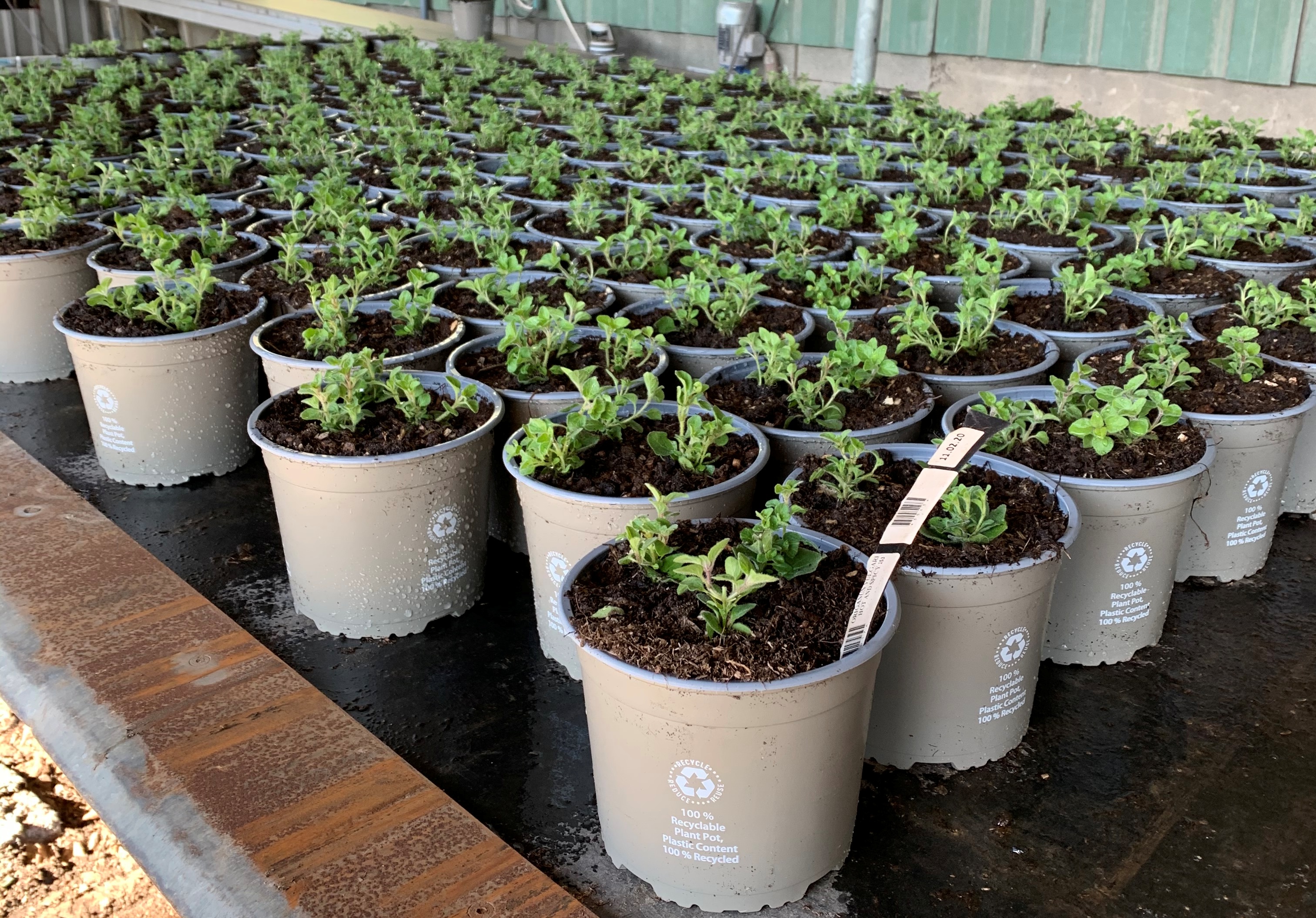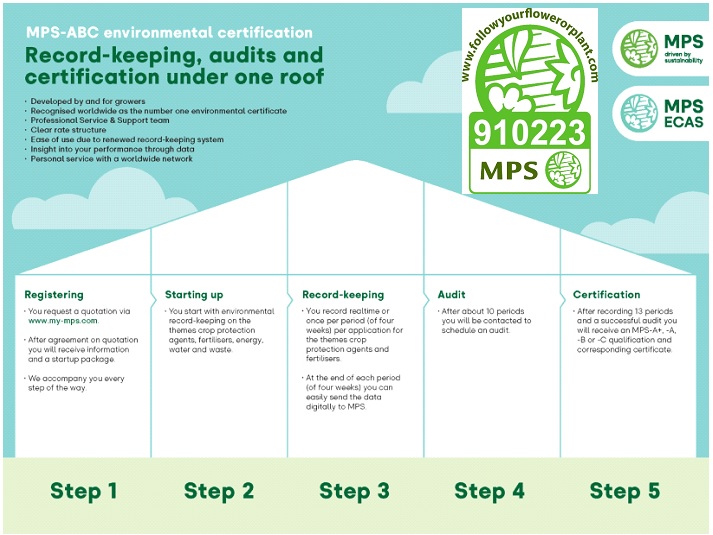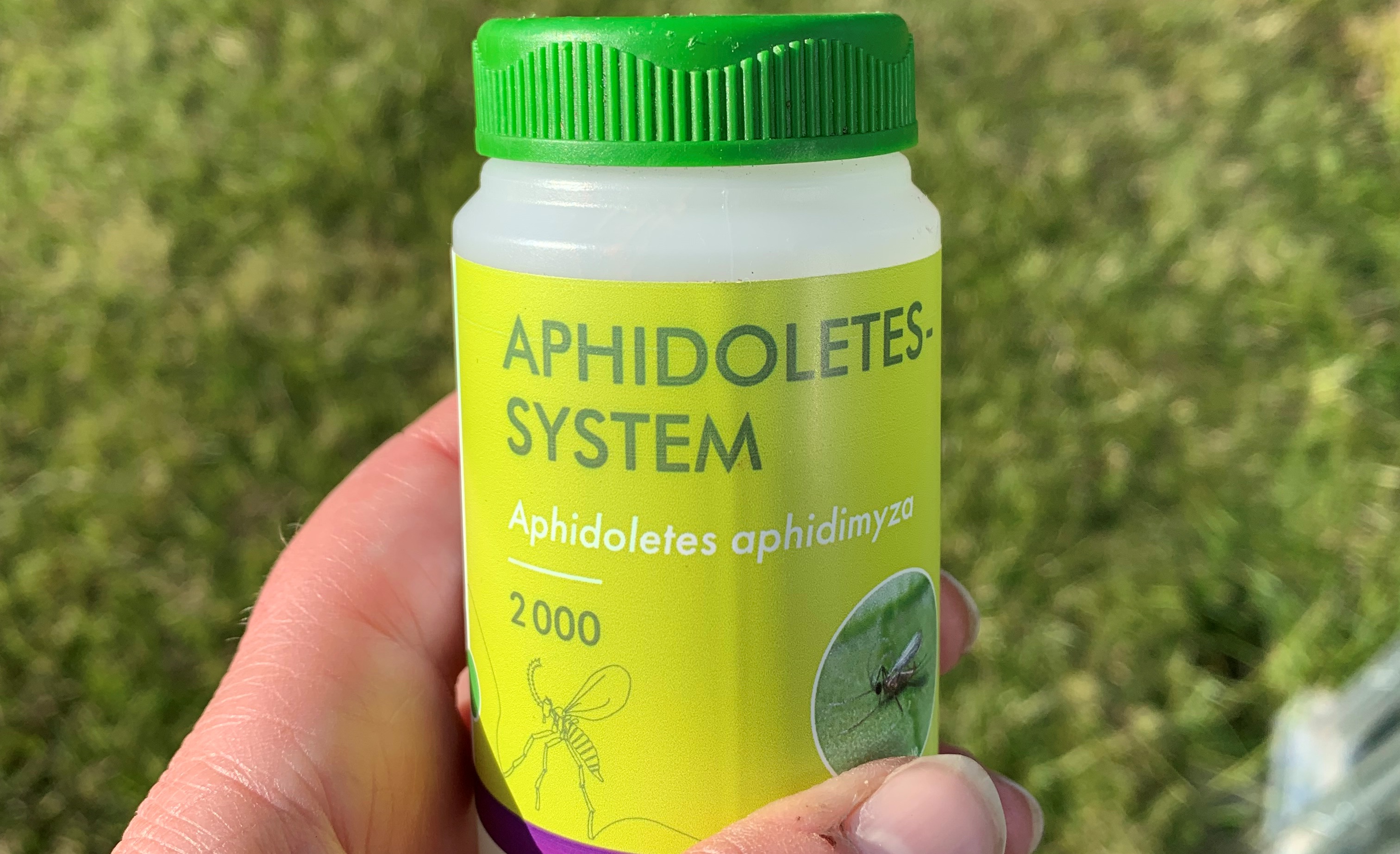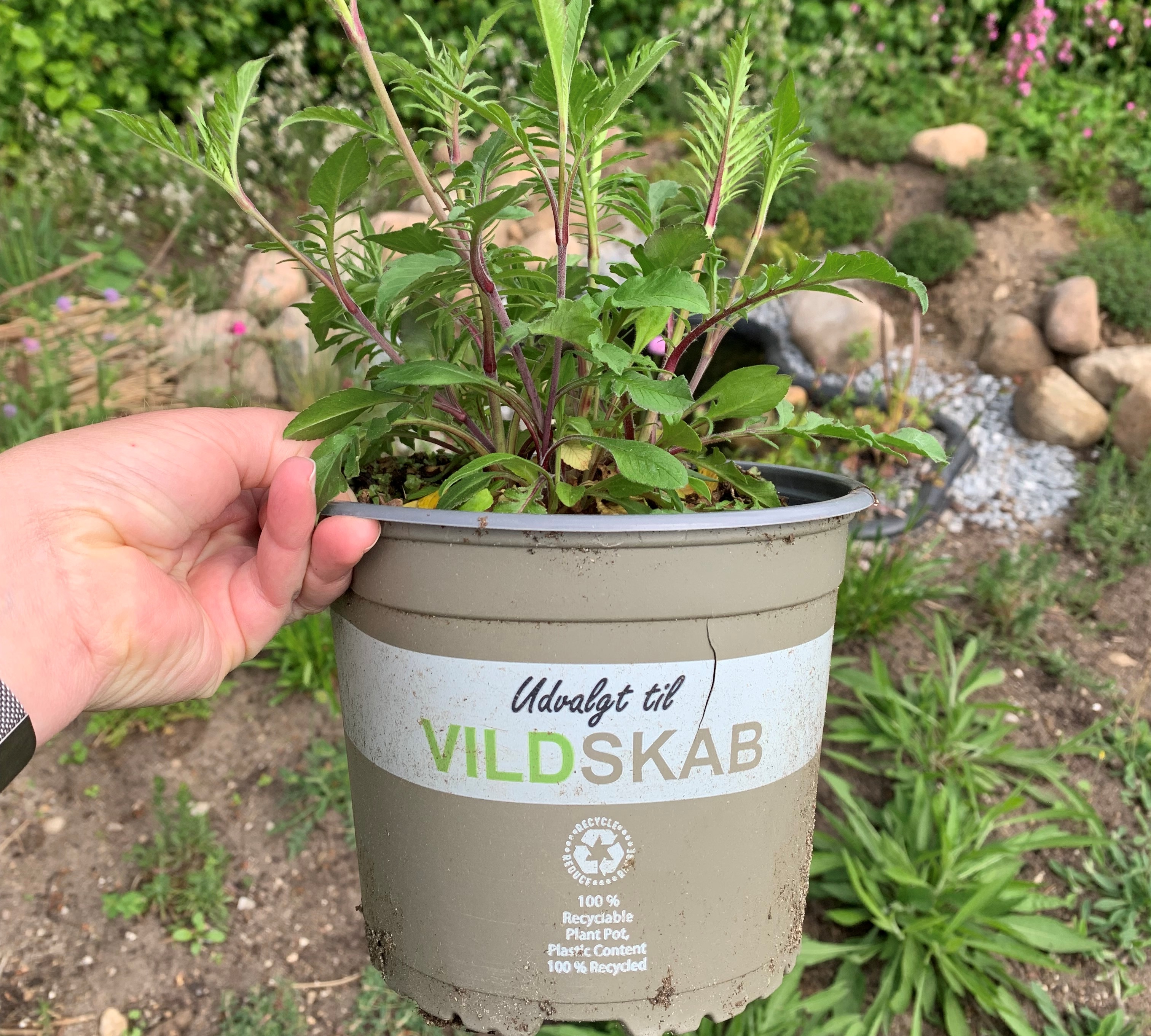Pots in recycled and recycable material
We use a lot of pots every year, so it was natural for us to look at a more environmentally friendly solution. For several years we researched and tested biodegradable pots, but with our very varied and often long production cycles, we never found a sustainable solution in biodegradable material. In 2019, we decided to replace the traditional black plastic pots with gray pots that are made from 100% recycled plastic and are also 100% recyclable. The problem with the black pots is that they contain carbon. They cannot therefore be scanned and are thus not recognized as recyclable in the automated sorting systems. Therefore, the black pots end up being incinerated, while the gray ones are recycled.

Environmental certification
Like everyone else, we strive to treat our environment and resources with respect. We use mechanical weed control where it makes sense, we use biological control where possible, etc. We also go to great lengths to remove plants from the assortment if they are particularly exposed to diseases or pests that require treatment. Even if we think we're doing our best, it's always good to have a standard to hold ourselves up to. In 2019, we therefore started reporting our consumption of water, electricity, oil, fertilizer and chemicals to MPS-ABC, which is a Dutch environmental certification within plant production. After a year of reporting, the result came out: We got an A+ in 'environment', which is the best category you can land in.

Biological control
There are many good biological agents and helpful little insects, fungi etc. that we use in our production, and where it makes sense, we do. We also use chemicals when it is the most effective, but as is evident from our environmental certification, we work responsibly with our weed and pest control.

Biodiversity
It is well documented that there are fewer and fewer insects and we also know that we depend on the insects for pollination. The insects are under pressure from global warming, intensive agriculture and other factors, but also from our garden culture. A lawn is a desert for the insects that feed on pollen and nectar and many of the beautiful full flowers we plant make it difficult for the insects to get to the plant's pollen and nectar.
As a producer of plants for the gardens, we would like to help the garden owners and the professional plant users to help the insects, and we have therefore chosen to highlight the good insect plants in our range. We have done this by creating a category for wild native plants and insect-friendly plants respectively on our website. The native wild perennials and grasses have been selected in collaboration with biologist Katrine Turner and are grown in easily recognizable pots with the text 'Udvalgt til Vildskab'. We have also put insect symbols on the labels of the insect-friendly plants we send out to the gardencenters.
It is not enough to think about pollen and nectar plants for the insects, it is also important that there are breeding grounds, both in the form of an insect hotel and by planting good host plants for the larvae, this will be indicated in the text on the labels.
Look for the native species as well as the bee and butterfly on the labels when choosing plants at the garden center and you are well on your way to creating a buzzing oasis in your garden.

Product prices are converted and displayed based on the current exchange rate for the selected currency
At Nygaards Planteskole, we think about how we can plan an efficient production, while at the same time minimizing our environmental footprint. These considerations include our production materials, how we treat the plants during production and selecting the hardiest varieties, minimizing the need for treatment. Here we will give a brief description of some of the topics we work with on a daily basis.